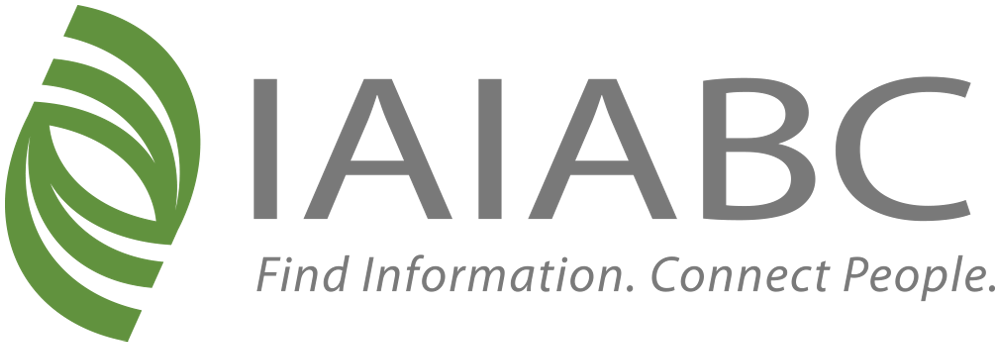Workers' Safety and Compensation Board, Yukon
IAIABC: Please provide a description of your organization.
Kurt Dieckmann, President/CEO, Workers' Safety and Compensation Board, Yukon: The Workers’ Safety and Compensation Board (WSCB), based in Whitehorse, Yukon, administers the Workers’ Safety and Compensation Act and provides compensation, service and support to Yukon workers injured on the job. We also promote workplace health and safety through education, training, inspections and investigations. Our mandate is to prevent disability and we provide a range of services to Yukon employers and workers.
We take care of injured workers by facilitating their stay at work, return to work and recovery. We work toward changing societal attitudes about safety and risk management. We do this by communicating strategically, social marketing, and educating youth to embrace the belief that all injuries can be prevented. We strive to reduce the number of injuries in Yukon workplaces through prevention, support, and compliance and enforcement strategies.
WSCB is made up of three core branches—Claimant Services, Employer and Client Services, and Workplace Health and Safety—who work collaboratively to prevent disability. All of the branches are guided by the board’s corporate values of partnership, accountability and compassion. Approximately 100 people work for the board.
The Yukon workers’ compensation system, like that of all other Canadian jurisdictions, reflect the founding principles developed by William Meredith, whose work led to the first workers’ compensation act in Canada. One of the main principles is exclusive jurisdiction, which means only workers’ compensation organizations can provide workers’ compensation insurance. All compensation claims are made directly to the organization, which acts as the decision-maker and final authority for all claims.
The Yukon is a unique jurisdiction, covering a land mass the size of Spain (483,450 square kilometers), with just over 40,000 people living in the territory. A large employer in the Yukon would likely be considered a very small employer in many other jurisdictions. In the northern parts of the territory, the midnight sun shines 24 hours a day in the summer and is completely absent in the winter. This can lead to unique challenges like worker fatigue and a short working season. The harsh landscape combined with severe weather and limited access to specialized medical services can cause significant health and safety challenges.
We’re proud of our land, culture and people in the Yukon. We’re proud, especially, of how our tight-knit community support each other in staying safe on the work site.
IAIABC: How does your organization serve the workers’ compensation industry?
KD: Our goal is primary and secondary prevention of workplace injuries. We work towards primary prevention in the workplace by promoting workplace safety and enforcing workplace health and safety regulations. When injuries have occurred, our goal is to prevent them from becoming lifelong disabilities. This includes fair compensation, effective rehabilitation and safe and early return to work.
The legislation that guides our work was updated July 1, 2022. The Workers’ Safety and Compensation Act (The Act) amalgamated, updated and replaced our previous acts, the Workers’ Compensation Act and the Occupational Health and Safety Act.
The changes in the Workers’ Safety and Compensation Act enhance worker safety, reduce workplace injuries, streamline the appeals process and improve return to work practices.
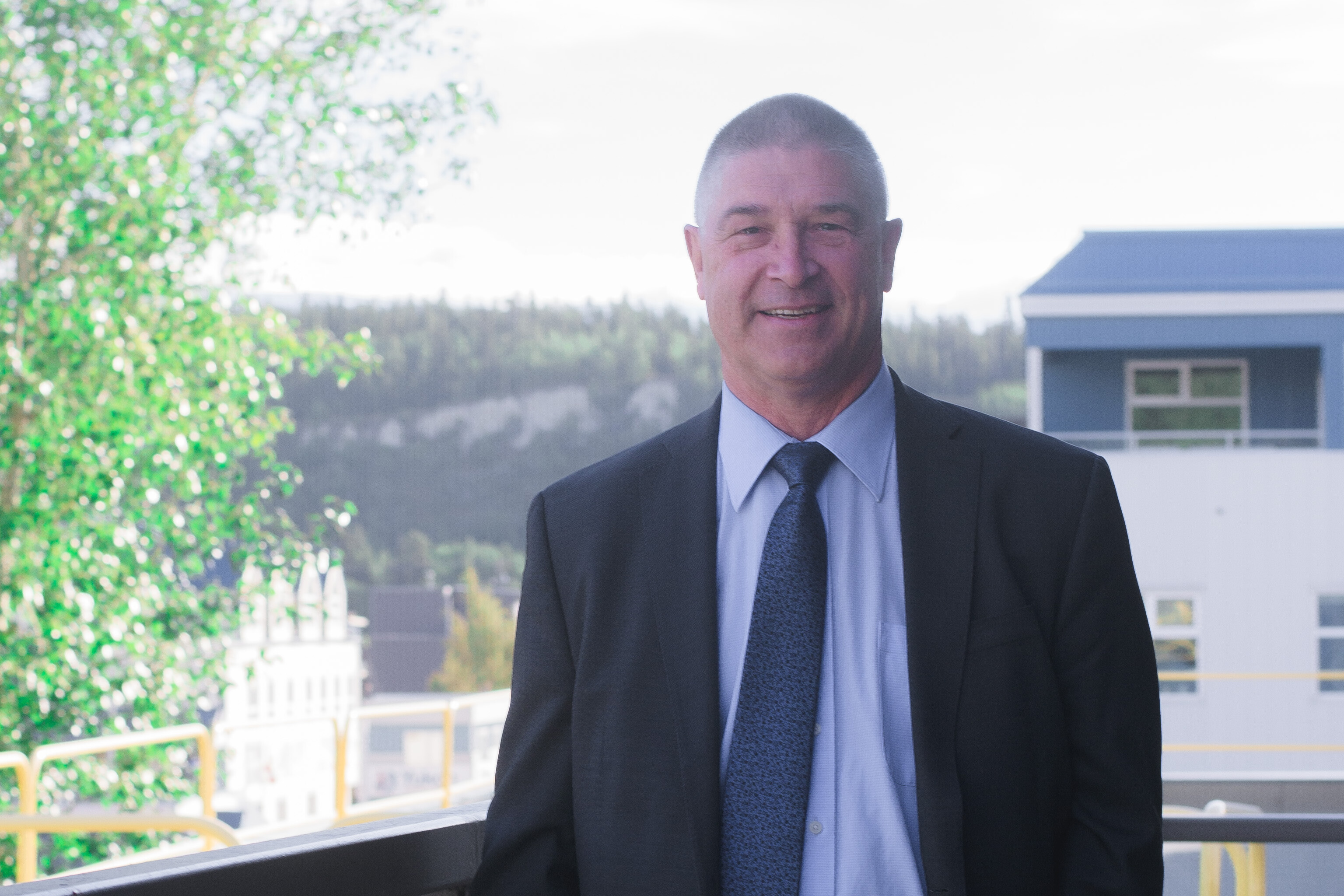
IAIABC: What do you see as some of the major challenges the industry is facing, and how can we as a community address them?
KD: Some of the biggest challenges we see in the Yukon are: increasing psychological injury claims, labour shortages, an aging workforce, the introduction of artificial intelligence and attempting to stay ahead of the curve for unforeseen global events like the COVID-19 pandemic.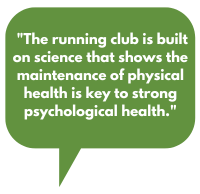
To address challenges and be proactive, we believe in focusing on prevention. From a primary point of view, that means exploring and developing tools like predictive analytics to help us identify where the next injuries will occur. With injuries that have already occurred, we can use this type of analytics to develop modeling of what kind of risks can happen during recovery, as there are many environmental, psychological and workplace factors that play into the recovery and return to work process. If we can successfully identify barriers in recovery—for example, the difficult trajectory of recovery while dealing with substance abuse—we can help clients recover quickly and successfully get back to their lives.
We’re also looking at scientific models like brain development in young males. Workers in this age group will often take more risks because the risk versus reward cognitive ability has not fully developed. The more we understand this kind of modeling, the more we can focus on targeting specific education for different groups of Yukoners.
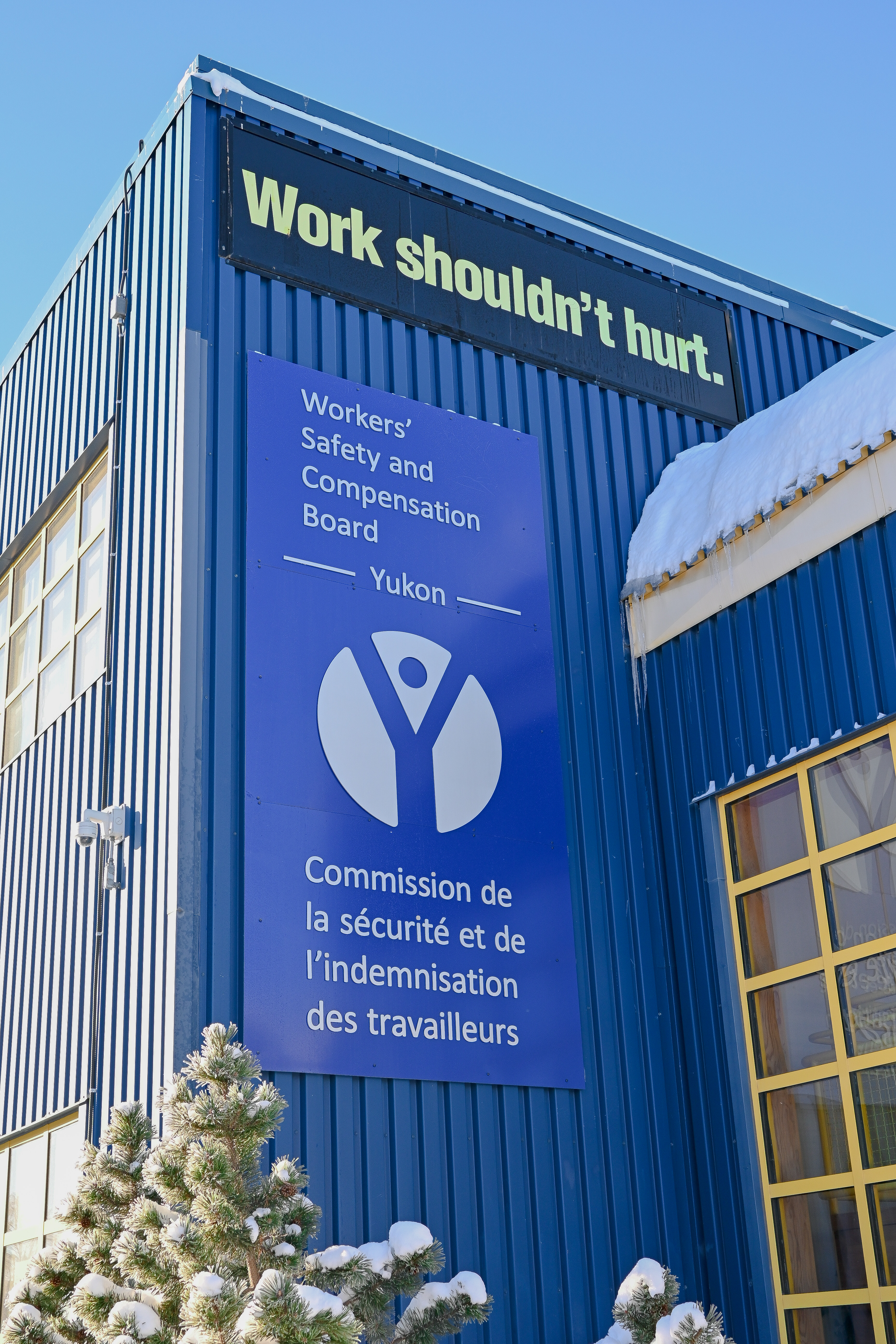
IAIABC: Are there any projects/programs/initiatives going on at your organization that you are particularly excited or enthusiastic about?
KD: We’re currently working on a new strategic plan that will allow us to move forward with initiatives that prevent injury, facilitate stay at work and early and safe return to work.
One initiative we’re particularly proud of is our Ironwomen running club for teenage girls. The after-school program supports mental health through movement, community, mentorship and fun. The running club is built on science that shows the maintenance of physical health is key to strong psychological health. The sport has been shown to increase brain-derived neurotrophic factor in humans in a way that mimics a regular anti-depressive drug, as well it increases brain plasticity, and improves learning and memory functions. We see it as a way of setting up Yukon youth with a foundation of psychological health as they enter the workforce.
Our Claimant Services Branch is currently engaged in a multi-year study to analyze the data from mental health claims over the last several years. When this work is finished, the board will use the information to improve our services and health outcomes for claimants. The goal is to see if we can find areas to inform case management, like the timing of interdisciplinary programs and types of effective treatment.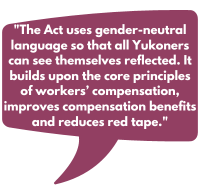 We’re also focused on using technology so that accessing our information is as easy as possible. One project we recently launched is a new mobile app to help with the prevention of workplace violence and harassment. It contains all the details found in our Workplace Violence and Harassment Prevention guide, but it’s formatted for mobile use. It can be saved to any mobile device’s home screen with its own tile for easy access.
We’re also focused on using technology so that accessing our information is as easy as possible. One project we recently launched is a new mobile app to help with the prevention of workplace violence and harassment. It contains all the details found in our Workplace Violence and Harassment Prevention guide, but it’s formatted for mobile use. It can be saved to any mobile device’s home screen with its own tile for easy access.
Finally, we’re proud of the work done to implement the new Workers’ Safety and Compensation Act, which came into force July 1, 2022. The Act uses gender-neutral language so that all Yukoners can see themselves reflected. It builds upon the core principles of workers’ compensation, improves compensation benefits and reduces red tape. We believe there is something for all Yukon workers and employers in this new and updated legislation.
For example, for workers, the Act expands the post-traumatic stress disorder (PTSD) presumption to cover all workers, recognizing that all Yukoners have the potential to suffer from PTSD as a result of being exposed to traumatic events due to their employment.
For employers, the Act reduces red tape associated with workers who perform work outside of the Yukon for temporary periods of time, and strengthens and updates the general health and safety duties of workplace parties.
IAIABC: Why is your organization a member of the IAIABC? What would you tell others about the benefits of membership?
KD: We’re grateful to be a member of the IAIABC. The resources, training and networking provided through the IAIABC are invaluable. Understanding the landscape of what’s happening in other jurisdictions is incredibly important for our organization to maintain its forward-thinking, innovative work.
